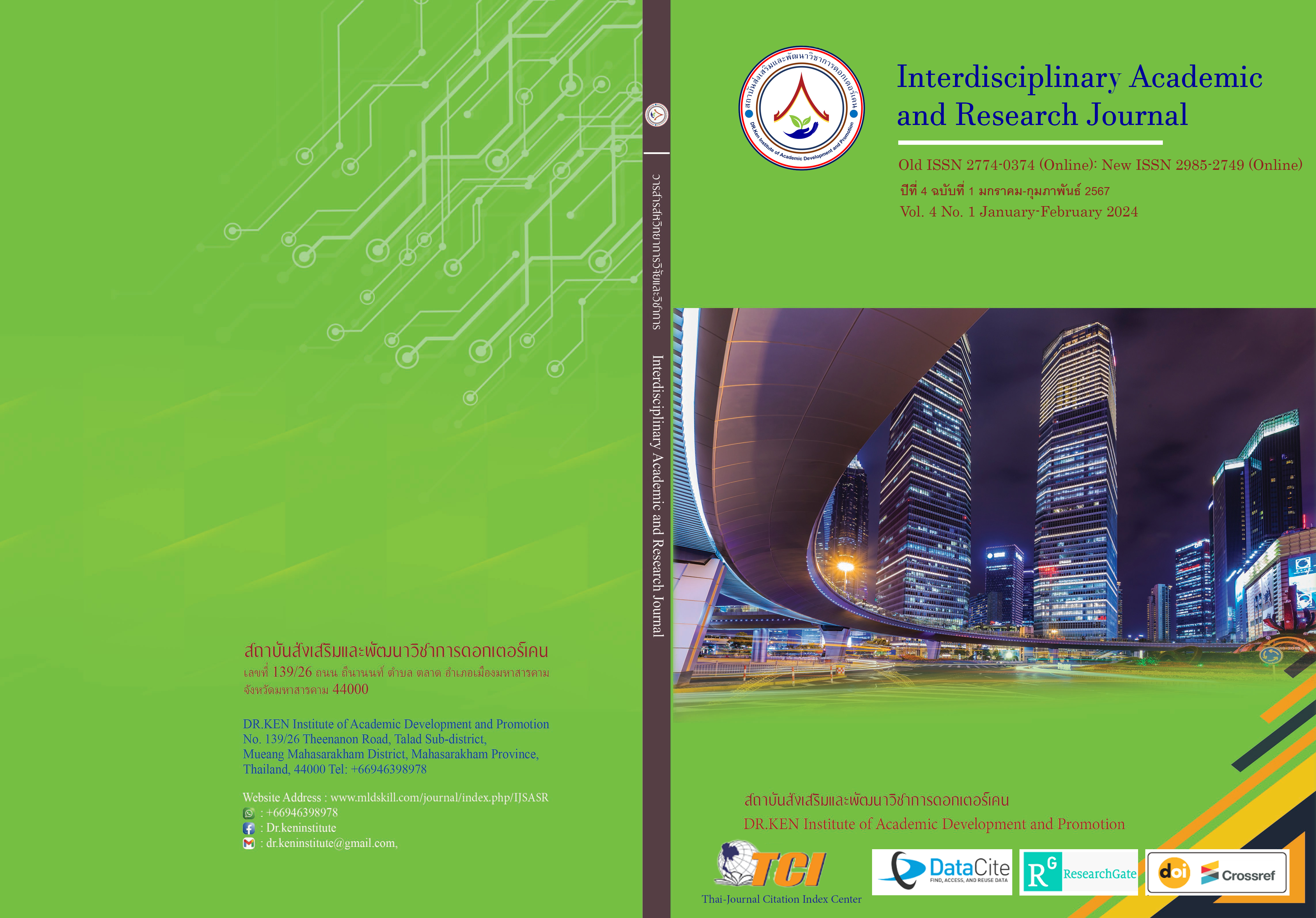Legal Problems Relating to the Control of Photo Editing for Online Apparel Trading
DOI:
https://doi.org/10.60027/iarj.2024.272620Keywords:
Photo Editing; , ApparelAbstract
Background and Aims: Buying and selling products on online platforms, whether it be Facebook, Lazada, Shopee, or TikTok, often faces problems with products not matching the description. As a result, many times there are news stories about consumers purchasing products online and receiving incorrect products, sometimes it was wrong. Thus, this thesis on the legal problems relating to the control of photo editing for online apparel trading aims to (1) investigate background, principles, and theories related to controlling photo editing for online apparel trading, (2) explore legal measures of Thailand and the foreign countries on controlling photo editing for online apparel trading, (3) analyze the legal problems on controlling photo editing for online apparel trading, and (4) propose approaches to solve the legal problems on controlling photo editing for online apparel trading.
Methodology: This thesis is qualitative research. The study method is document research.
Results: (1) Regarding the problems of photo editing for online apparel trading, Section 22 of the Consumer Protection Act B.E.2522 does not specify the statements which are modified for product advertisement through online media leading the consumers to misunderstand the apparel products; (2) Regarding the problems of photo editing for online apparel trading, the word “statement” in Sections 3 and 22 of the Consumer Protection Act B.E.2522 does not include the apparel products which causes online product advertisement to have no clarity on prohibiting the use of applications to edit photos for online trading, as well as setting the value of color tone for the screen of electronic devices to be the most similar to the actual products; and (3) Regarding the problems of the advertising committees’ authority on controlling photo editing for online apparel trading, Section 27 empowers the advertising committees on issuing an order as specified in Section 27 but does not empower them to have the authority to control photo editing for online apparel trading. Therefore, the researcher would like to propose amendments to the Consumer Protection Act B.E.2522 to solve the legal problems as follows: (1) Section 22 adding the word “the statements which are modified for product advertisement through online media,” (2) Section 3 establishing the definition of “apparel products,” and (3) Section 27 empowering the advertising committees to have an authority to control photo editing for online apparel trading.
Conclusion: The study reveals legal issues in online product advertising through image manipulation, particularly concerning clothing items. The Consumer Protection Act of 1979 lacks provisions addressing modified images, resulting in consumer confusion, and restrictions on defining text in the law contribute to unclear online advertising. The researcher suggests legal amendments to enhance clarity, proposing additions to the Consumer Protection Act, including defining modified images, specifying clothing items, and granting the Advertising Committee authority to regulate image manipulation in online clothing sales.
References
ไทยรัฐออนไลน์. (2566). สาวเซ็ง ได้เสื้อไม่ตรงปก หวังซื้อเซอร์ไพรส์แฟน สุดท้ายต้องเอาไปเซอร์ไพรส์พ่อ. Retrieved from: https://www.thairath.co.th/news/society /2660570
นพดล ธนะภักดิ์. (2565). การถ่ายภาพโฆษณาและประชาสัมพันธ์. Retrieved from: http//www.student. nu.ac.th/sunita/kod02.htmt
น้ำฝน โพธิ์ปลอด. (2562). มาตรการทางกฎหมายอาญาในกรณีการโฆษณาสินค้าที่เกินความจริง. วิทยานิพนธ์นิติศาสตรมหาบัณฑิต กลุ่มวิชากฎหมายอาญาและกระบวนการยุติธรรมทางอาญา, คณะนิติศาสตร์ มหาวิทยาลัยศรีปทุม.
รัฐสภา จุลีมาศ. (2564). แนวทางการคุ้มครองผู้บริโภคจากความไม่ได้มาตรฐานของสินค้า: กรณีศึกษาประเทศสิงคโปร์. วารสารนิติศาสตร์ มหาวิทยาลัยอัสสัมชัญ, 12 (1), 102-115.
อริสรา ไวยเจริญ. (2558). การโฆษณากับพฤติกรรมผู้บริโภคในยุคดิจิทัล. วารสารนิเทศศาสตร์ธุรกิจบัณฑิตย์, 9 (1), 11-35.
Geiger, G. (2021). Norway Law Forces Influencers to Label Retouched Photos on Instagram. Retrieved 5 April 2023 from: https://www.vice.com/en/article/g5gd99/norway-law-forces-influencers-to-label-retouched-photos-on-instagram?fbclid=IwAR3YVHNwNeg8hp_y-cuSSBHq0r77Hu66UBiN6HjOad71rToRfh56krKLcck.
Downloads
Published
How to Cite
Issue
Section
License
Copyright (c) 2024 Orawan Samuseneeto, Siwaporn Saowakon

This work is licensed under a Creative Commons Attribution-NonCommercial-NoDerivatives 4.0 International License.
Copyright on any article in the Interdisciplinary Academic and Research Journal is retained by the author(s) under the under the Creative Commons Attribution-NonCommercial-NoDerivatives 4.0 International License. Permission to use text, content, images, etc. of publication. Any user to read, download, copy, distribute, print, search, or link to the full texts of articles, crawl them for indexing, pass them as data to software, or use them for any other lawful purpose. But do not use it for commercial use or with the intent to benefit any business.
















.png)


